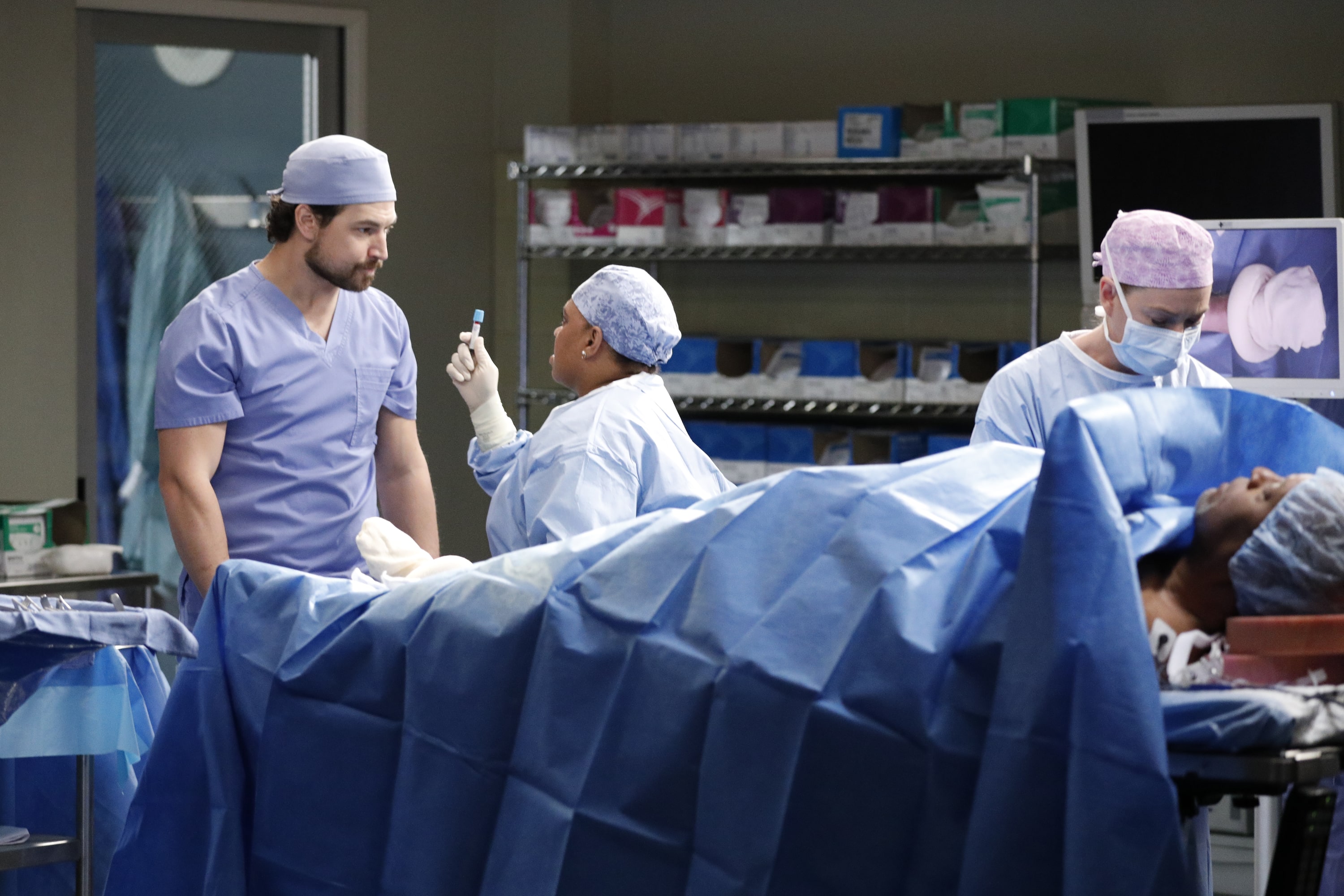‘Grey’s Anatomy’: Mixed Opinions About the Show Tackling COVID-19 Spans Beyond Fans
Since it first began airing in 2005, Grey’s Anatomy has been a staple television in homes around the world. Fans fell in love with star Meredith Grey and her trials and tribulations as she worked from intern to chief and co-owner of the fictional Grey-Sloan Memorial Hospital in Seattle, Washington.

On countless occasions, the show has tackled real-life situations as depicted through the lives of the main characters and guest stars as hospital patients. As fans watched characters on the show experience grief, joy, and jealousy, among many other emotions, they have been able to put themselves in the shoes of the characters. In its most recent season, however, the response has been polarized due to the inclusion of a subject still ravaging the real world: COVID-19.
Greys Anatomy highlights COVID-19
While it was normal for the show to present storylines in this way, in its current season the show has opted to include coverage of the coronavirus pandemic, with viewers watching the team of doctors navigate the experiences often covered by the media of real-life doctors and nurses.
Early on during this season, Dr. Miranda Bailey, played by Chandra Wilson, endured the experience of having a parent diagnosed with the virus.
Throughout the episodes, fans watched as Dr. Bailey had to make the decisions regarding the care her mother was to receive, all while watching the debilitating impact the virus has on the body, on the screen. Fans of the show have provided mixed responses to the heavy coronavirus subject matter. However, given the wide range of impacts the coronavirus pandemic has had on the lives of the general public, others who have been directly impacted by the virus have noted the coverage has provided a bit of solace.
Here’s what a doctor says about how the show is covering COVID-19
Recently, Jessi Gold, a psychiatrist, shared the perspective of patients. In an interview with InStyle, she noted, “Some people say, ‘It’s really important to me to see that someone cares, validates my experience, and I know that their writers are trying to echo our experiences in a realistic way. And then there’s another group that says, ‘I turned it on for two seconds and I was traumatized and I couldn’t keep watching.’”
Overall, it is an experience that could be uncomfortable for not only doctors but all frontline workers of different careers and jobs.
“It is a privilege to not have to deal with [COVID-19] every day because you’re not in it, you don’t have somebody who’s struggling, or you don’t have a family member who is dealing with it,” Gold continued. “When healthcare workers stop, breathe, and the adrenaline settles and they remember that they’re a person too and not a robot who functions on zero sleep taking care of people that are dying on an assembly line until they’re told to stop, then they will ask, ‘How am I doing?’ Which they probably haven’t asked themselves in nine months. And then at that point, they’ll actually have to respond to that question with the answer being probably not well.”
Others have focused more on the nuances of living during this time, as depicted by the life of Dr. Maggie Pierce, who has to quarantine in a hotel away from family to limit exposure to the virus, a decision many healthcare workers have had to make since the virus first surged.
Regardless of the feeling of viewers, Grey’s Anatomy is sure to continue to be a conversation topic for fans and members of the medical community alike.


